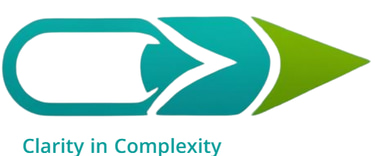6 Common Import Mistakes in the GCC — And How to Avoid Them
Blog post descript6 Common Import Mistakes in the GCC
Technical Manger
4/17/20252 min read


6 Common Import Mistakes in the GCC — And How to Avoid Them
Importing goods into GCC countries like the UAE, Saudi Arabia, Oman, Bahrain, Kuwait, and Qatar offers great opportunities — but even small missteps can lead to major delays, fines, or unexpected costs.
Here are six common import mistakes companies make in the GCC — and how you can avoid them.
1. Inaccurate HS Code Classification
The HS code determines your customs duties, VAT, restrictions, and required certifications. Misclassifying can lead to under- or over-paying duties, or even triggering customs audits.
How to avoid it:
Use official GCC tariff look-up tools.
Consult a trade compliance expert to verify HS codes.
Keep classification rulings or records for proof.
2. Missing or Incomplete Documentation
Incorrect or missing paperwork is a top reason for customs clearance delays in the GCC.
Key documents to check:
Commercial invoice (with Incoterms, value, origin)
Packing list
Certificate of origin
Any required approvals
3. Ignoring Country-Specific Import Restrictions
Each GCC country enforces unique rules — especially for electronics, food, medical devices, and cosmetics.
How to avoid it:
Review import restrictions for each target country
Check with local customs or compliance authorities
Engage a regional customs consultant
4. Underutilizing Trade Agreements
Most importers overlook duty-saving opportunities under GCC FTAs (e.g., GAFTA, EFTA). This means higher import costs than necessary.
How to avoid it:
Identify if your products qualify for reduced tariffs
Ensure proper certificates of origin are included
Stay updated on regional trade agreements
5. Using Wrong Incoterms or Freight Partner
Misunderstood Incoterms can lead to surprise costs, and choosing unreliable logistics partners can delay shipments or cause compliance issues.
How to avoid it:
Understand Incoterms responsibilities (like DDP vs. FOB)
Choose trusted, vetted freight forwarders or customs brokers
Have a consultant review shipping terms before finalizing
6. Selecting the Wrong Customs Clearance Agent (Can Double Your Costs)
A poorly trained or unqualified customs clearance agent can make critical errors — like mis declaring shipments or failing to comply with regulations — resulting in penalties, storage delays, and paying up to 200% more in hidden costs.
How it can cost you:
Misclassification = higher duties + fines
Incorrect paperwork = demurrage and port storage
Non-compliance = seizure or return of goods
Missed deadlines = lost contracts or delayed sales
How to avoid it:
Choose agents with proven experience in GCC customs laws
Ask for references or industry certifications
Don’t go with the cheapest option — it may cost you more later
Consider a consultant to supervise your customs clearance process
Need help choosing a customs clearance agent or customs Local Representation?
We are specializing in helping businesses reduce risks, lower duties, and move goods smoothly across GCC borders.
+968 95150082
